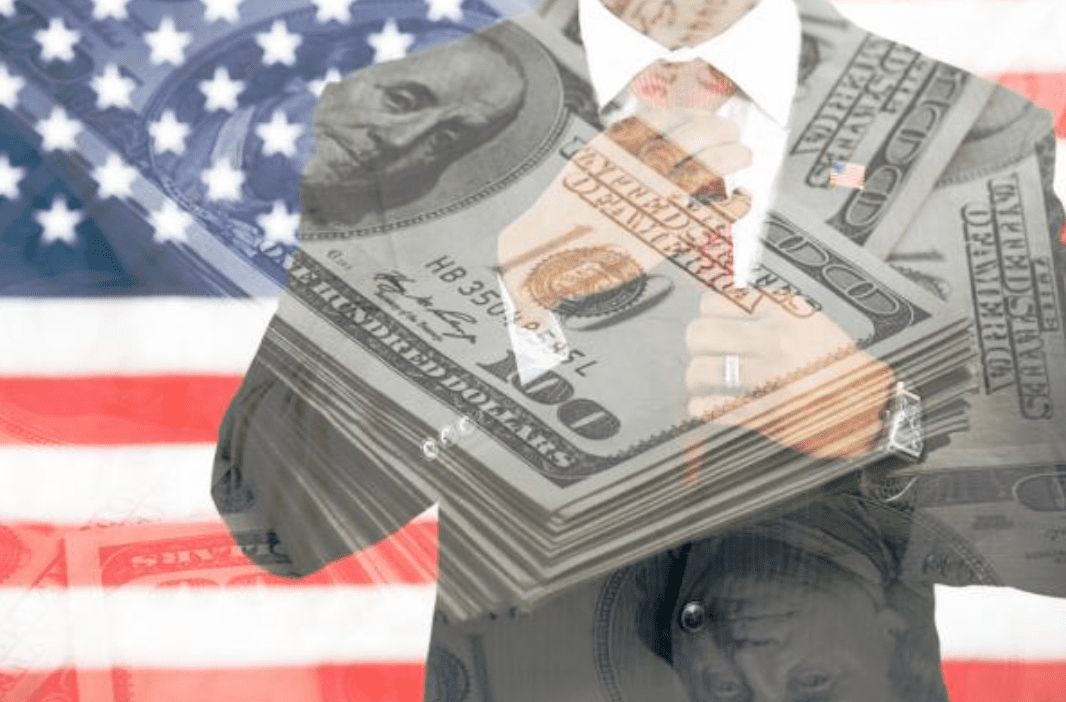This content is restricted to subscribers

The views, opinions and positions expressed by columnists and contributors are the author’s alone. They do not inherently or expressly reflect the views, opinions and/or positions of our publication.

This content is restricted to subscribers
The views, opinions and positions expressed by columnists and contributors are the author’s alone. They do not inherently or expressly reflect the views, opinions and/or positions of our publication.

Remember the need to stop people buying elections? Funny, neither do I. Nor, I expect, do Tom Steyer or Michael Bloomberg.
It kind of got lost in the big news around Super Tuesday. First you had Pete Buttigieg dropping out, I suspect not least because people couldn't pronounce his name. Then you had the stunning detail that Donald Trump was in consequence the youngest male still in contention for the 2020 presidency as youth rises up in … in… sorry. I forget.
As for female candidates, a young person named Tulsi Gabbard apparently thinks she's running. Exactly. But everyone else still standing was over 70 except Amy Klobuchar, also unpronounceable and no spring chicken at 59. (She'd also been the target of protests for sending someone to jail for life for shooting an 11-year-old girl; if I were the Democrats I'd be worried about that vibe.) But she dropped out too.
It seems a lot of people aren't winning the nomination. As usual. People forget that one cruel aspect of the cruel business of politics is that most people lose every election. Even in a very narrow two-party system, there are defeated candidates for the party nominations. (The Soviets solved that problem, but at excessive cost.) And it's also cruel to see the way in which certain people keep running and nobody knows but their mother. As somebody in Nixon's entourage said of Hale Boggs, he had developed "inexplicable presidential ambitions". Exactly. Hale who?
Some people's candidacies are pitiful from the start. But sometimes pitiful turns into endearingly Quixotic. And you never do know. The stars can align. Right, inexperienced first-term Senator Obama? (In his case, the name was hard to spell. But it was easy to pronounce whether or not you saw it written down.) But many other candidates achieve pathos, or have it thrust upon them. Like Bill Bradley in 2000. Exactly. Who was he again?
Whatever the ups and downs of the nomination process and their own preferences, the pundit class has been pretty strongly united on one point. We must not let people buy elections. It would corrupt our democracy. Far more than the allegation that voters were venal chumps. (Buying elections with public money is of course not just allowed, it's de rigeur. But I digress.)
On Wednesday the National Post ran edited remarks from a Munk Debates Podcast in which Bhaskar Sunkara, a self-described "old school democratic socialist" who said billionaires should not exist, declared that "Bloomberg and Steyer are both in that competitive [Democratic] field mostly due to the merits of their wealth…. This in itself shows a problem with billionaires in our society. It's a violation of the democratic principle of one person, one vote."
Before you burst out laughing, remember that Canada has long had strict limitations on the use of your own money to express opinions during elections so you won't buy your neighbours' feeble minds. Even Stephen Harper, who protested the gag law vigorously as president of the NCC, found it quite cozy once in power. Unfortunately he also found that his own party's fundraising prowess could not win him an election.
So now go ahead and laugh. Because it's funny how terrified we are of the bogeyman of money in politics when nobody has ever showed that it's possible to buy elections. It's not just that there are counterexamples. It's that there's no general tendency of the bigger-spending candidate to win. Despite the real tendency of winning candidates to attract money.
Of course successful campaigns are expensive and of course successful candidates attract money as they rise so there's generally a correlation between high spending and victory. But having a huge wad of cash is no guarantee. It's not just that at the end of a long and gruelling campaign the almost-successful candidate probably spent a bundle too. It's that for every Donald Trump there's a Tom Steyer.
In case he made no impression on you either, Steyer is a man with a plan. A bright green plan. Or a dim one depending on your environmental views. But he's certainly not an opportunist, someone without an identity, someone driven by vanity or someone… able to buy an election. Steyer, a big-time Democratic backer in past cycles, spent nearly $160 million on his own candidacy this time and won no delegates in Iowa, none in Nevada and in the critical South Carolina contest finished third and got… Aaack. What's this? No delegates. The bupkis of political death. And out he went.
As for Bloomberg, he'd spent over half a billion dollars by the start of March and also secured zero delegates, at the regrettable cost of infinity dollars each. Though to be fair he hadn't been on the ballot in any primaries. His plan was to advertise big and win big on "Super Tuesday".
We had to wait until Dismal Wednesday to evaluate that plan politically. But there was nothing unethical about it. And on Super Tuesday it turns out he won… oh dear. Forty-four delegates out of more than 1,000. The only place he came first was American Samoa. And dropped out of the race $500 million lighter. (On the plus side, unlike most of us, he can still afford to fly to American Samoa for a post-campaign vacation and thank all his supporters personally while he's at it.)
I like the American primary system. I don't think much of the candidates who emerge from it but for that I must point the boney finger of blame at voters. The problem isn't that the system doesn't consult them. It does so in a remarkably effective way, testing candidates' judgement, endurance, appeal to the base, capacity to reach out to swing voters, ability to react to adversity as well as success, raise money, spend it and bow out gracefully when they come a cropper. The problem is who voters choose, from Joe Biden or Bernie Sanders to Donald Trump and Hillary Clinton. But it's as close to "what the voters want" as anything could be.
What it's not is proof that in politics money talks. So can people shut up about the Benjamins, and debate issues and character? Because they really do matter.
Photo Credit: Sojourners
The views, opinions and positions expressed by columnists and contributors are the author’s alone. They do not inherently or expressly reflect the views, opinions and/or positions of our publication.